Mitsubishi Space Star vs VW Golf - Differences and prices compared
Compare performance (71 HP vs 333 HP), boot space and price (11600 £ vs 25200 £ ) at a glance. Find out which car is the better choice for you – Mitsubishi Space Star or VW Golf?
Costs and Efficiency:
When it comes to price and running costs, the biggest differences usually appear. This is often where you see which car fits your budget better in the long run.
Mitsubishi Space Star has a significantly advantage in terms of price – it starts at 11600 £ , while the VW Golf costs 25200 £ . That’s a price difference of around 13547 £.
Fuel consumption also shows a difference: VW Golf manages with 1.10 L and is therefore decisively more efficient than the Mitsubishi Space Star with 4.90 L. The difference is about 3.80 L per 100 km.
Engine and Performance:
Under the bonnet, it becomes clear which model is tuned for sportiness and which one takes the lead when you hit the accelerator.
When it comes to engine power, the VW Golf has a convincingly edge – offering 333 HP compared to 71 HP. That’s roughly 262 HP more horsepower.
In acceleration from 0 to 100 km/h, the VW Golf is significantly quicker – completing the sprint in 4.60 s, while the Mitsubishi Space Star takes 14.10 s. That’s about 9.50 s faster.
In terms of top speed, the VW Golf performs noticeable better – reaching 270 km/h, while the Mitsubishi Space Star tops out at 167 km/h. The difference is around 103 km/h.
There’s also a difference in torque: VW Golf pulls convincingly stronger with 420 Nm compared to 102 Nm. That’s about 318 Nm difference.
Space and Everyday Use:
Whether family car or daily driver – which one offers more room, flexibility and comfort?
Both vehicles offer seating for 5 people.
In curb weight, Mitsubishi Space Star is distinct lighter – 940 kg compared to 1307 kg. The difference is around 367 kg.
In terms of boot space, the VW Golf offers noticeable more room – 381 L compared to 235 L. That’s a difference of about 146 L.
In maximum load capacity, the VW Golf performs noticeable better – up to 1237 L, which is about 325 L more than the Mitsubishi Space Star.
When it comes to payload, VW Golf evident takes the win – 508 kg compared to 400 kg. That’s a difference of about 108 kg.
Who wins the race in the data check?
The VW Golf is clearly superior overall in the objective data comparison.
This result only shows which model scores more points on paper – not which of the two cars feels right for you.
Costs and Consumption
View detailed analysis
Engine and Performance
View detailed analysis
Dimensions and Body
View detailed analysis
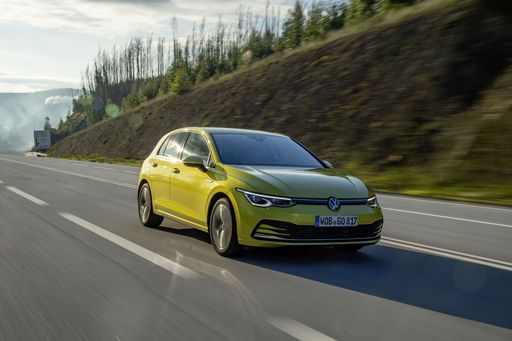
VW Golf
Mitsubishi Space Star
The Mitsubishi Space Star is a tidy, no-nonsense city car that squeezes surprising interior space into a compact, easy-to-park package. It's not a thrill-seeker's toy, but for buyers after low running costs, fuss-free reliability and sensible day-to-day practicality, it's a clever and cheerful choice that keeps your wallet and nerves happy.
details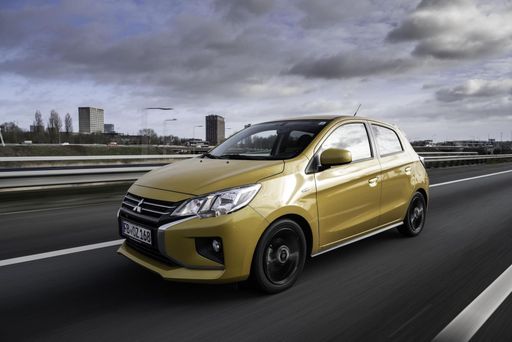
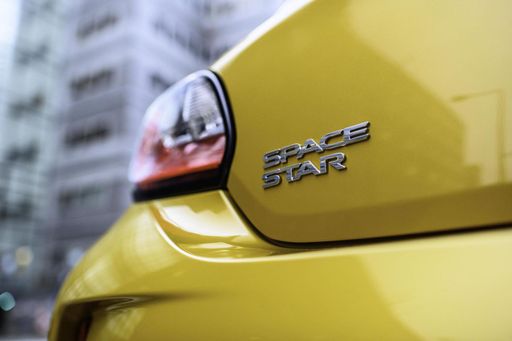
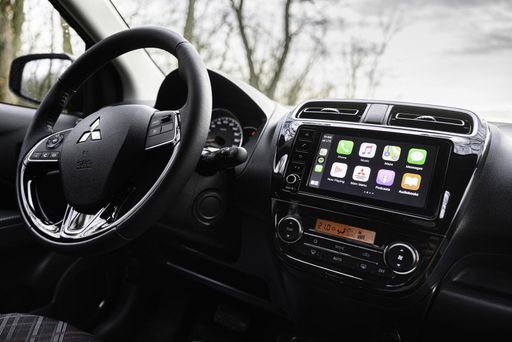
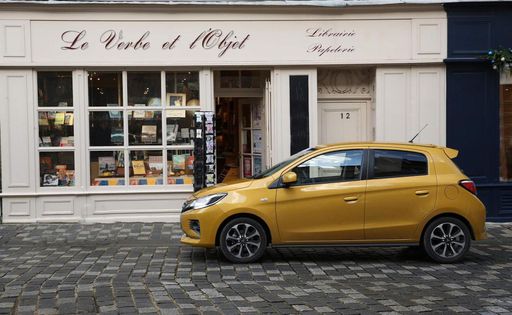
VW Golf
The VW Golf remains the everyman’s favourite — cleverly balanced, composed and just posh enough to feel grown-up without pretending to be something it’s not. It slips through town and eats up longer trips with a refined cabin, practical layout and a kindly, capable character that turns everyday driving into something a little bit special.
details
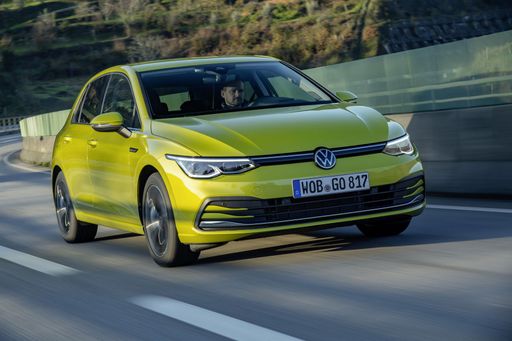
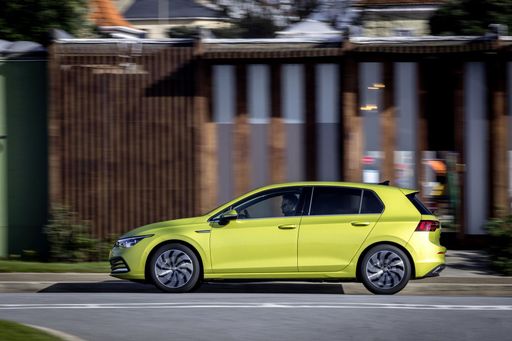
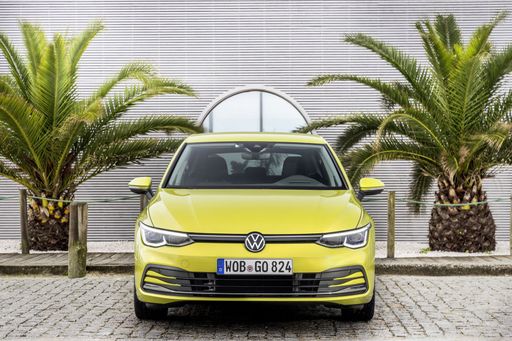
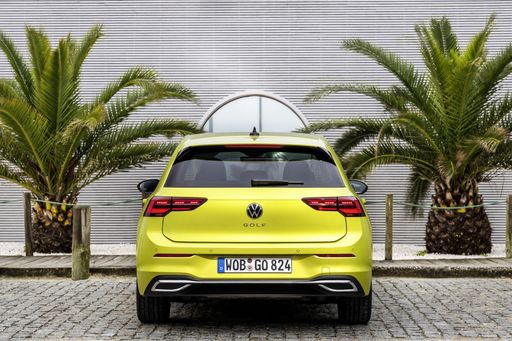
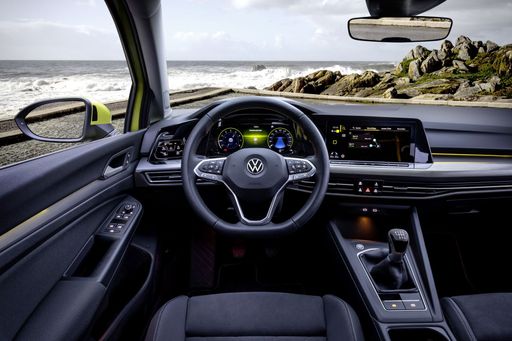
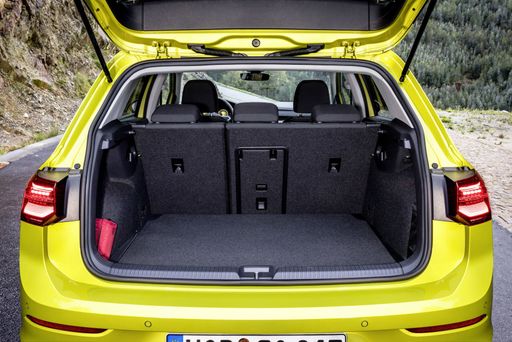
Costs and Consumption |
|
|---|---|
|
Price
11600 - 18700 £
|
Price
25200 - 47600 £
|
|
Consumption L/100km
4.9 - 5.5 L
|
Consumption L/100km
1.1 - 8.1 L
|
|
Consumption kWh/100km
-
|
Consumption kWh/100km
-
|
|
Electric Range
-
|
Electric Range
131 - 143 km
|
|
Battery Capacity
-
|
Battery Capacity
19.70 kWh
|
|
co2
112 - 125 g/km
|
co2
25 - 184 g/km
|
|
Fuel tank capacity
35 L
|
Fuel tank capacity
40 - 55 L
|
Dimensions and Body |
|
|---|---|
|
Body Type
Hatchback
|
Body Type
Hatchback
|
|
Seats
5
|
Seats
5
|
|
Doors
5
|
Doors
5
|
|
Curb weight
940 - 1011 kg
|
Curb weight
1307 - 1662 kg
|
|
Trunk capacity
209 - 235 L
|
Trunk capacity
273 - 381 L
|
|
Length
3845 mm
|
Length
4282 - 4296 mm
|
|
Width
1665 mm
|
Width
1789 mm
|
|
Height
1505 mm
|
Height
1454 - 1483 mm
|
|
Max trunk capacity
881 - 912 L
|
Max trunk capacity
1129 - 1237 L
|
|
Payload
359 - 400 kg
|
Payload
438 - 508 kg
|
Engine and Performance |
|
|---|---|
|
Engine Type
Petrol
|
Engine Type
Petrol MHEV, Petrol, Diesel, Plugin Hybrid
|
|
Transmission
Manuel, Automatic
|
Transmission
Automatic, Manuel
|
|
Transmission Detail
Manual Gearbox, CVT
|
Transmission Detail
Dual-Clutch Automatic, Manual Gearbox
|
|
Drive Type
Front-Wheel Drive
|
Drive Type
Front-Wheel Drive, All-Wheel Drive
|
|
Power HP
71 HP
|
Power HP
116 - 333 HP
|
|
Acceleration 0-100km/h
14.1 - 15.8 s
|
Acceleration 0-100km/h
4.6 - 10.2 s
|
|
Max Speed
163 - 167 km/h
|
Max Speed
202 - 270 km/h
|
|
Torque
102 Nm
|
Torque
220 - 420 Nm
|
|
Number of Cylinders
3
|
Number of Cylinders
4
|
|
Power kW
52 kW
|
Power kW
85 - 245 kW
|
|
Engine capacity
1193 cm3
|
Engine capacity
1498 - 1984 cm3
|
General |
|
|---|---|
|
Model Year
2020 - 2022
|
Model Year
2024 - 2025
|
|
CO2 Efficiency Class
C, D
|
CO2 Efficiency Class
D, F, G, C, B
|
|
Brand
Mitsubishi
|
Brand
VW
|
What drivetrain options does the Mitsubishi Space Star have?
Available configurations include Front-Wheel Drive.




